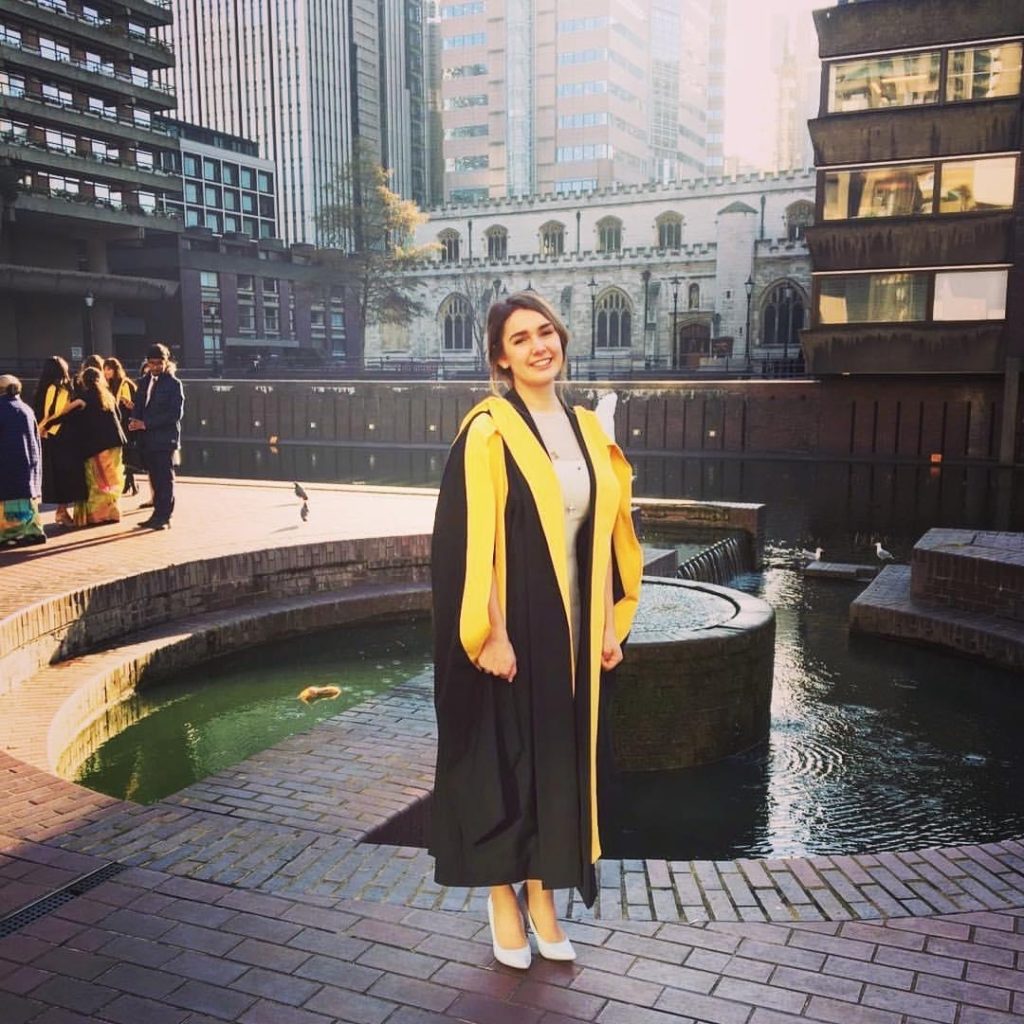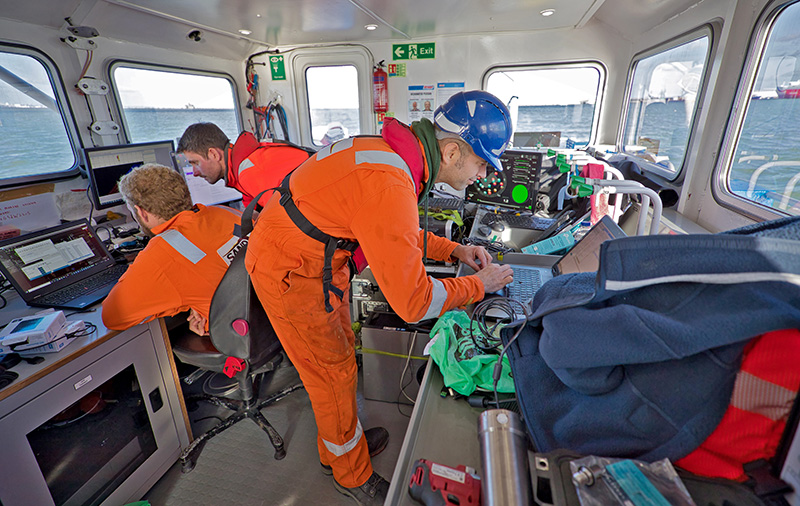Staff Spotlight with Bid Writer Lucy Bainbridge
Lucy Bainbridge understands the intricacies involved in conflict, security and development. Working with the wider operations team, Lucy coordinates and writes SafeLane’s bids for new international projects.
Staff Spotlight with Bid Writer Lucy Bainbridge
Lucy Bainbridge understands the intricacies involved in conflict, security and development. Working with the wider operations team, Lucy coordinates and writes SafeLane’s bids for new international projects.

How long have you been working for SafeLane, and what did you do before?
I’ve been with SafeLane for 15 months; before that I had two other jobs. I started as a Claims Investigator examining false insurance claims by conducting open source investigations and developing intelligence packages.
After this, I moved into the travel industry. Having grown up abroad, I developed a real love for languages and travel at a young age. I’ve studied quite a few over the years and took this new job as an opportunity to use my languages skills daily. I worked on travel events that were focused on enhancing experiential travel and celebrated the diverse cultures in Latin America and Africa.
The work focused on giving these continents a stage in the European arena. I started as an Events Coordinator before being promoted to Senior Operations Executive, where I managed a team of three; two Events Coordinators and a Marketing Executive.
Why did you decide to apply for a job at SafeLane?
I was actually approached by a recruitment agent from Rockfield first! They thought the role of bid writer would appeal to me based on my commercial experience and academic background – particularly because my master’s degree was in Conflict, Security and Development (CSD). They thought I would be interested in the job and the sector.
Where did your passion for development and security come from?
I studied Chinese and Economics at university and while I was there, I did modules on gender economics and socio-economic development of developing countries.
The modules addressed issues in resource allocation, state-building and geographical disparity.
I found the impact of conflict on the two modules particularly fascinating; for example, how different economic strategies implemented by the communities or the state supported economic development in areas that had recently recovered from conflict. This left me with all these questions that I wanted to find answers for.
I came across the CSD program at King’s College London and thought it addressed these issues and a whole range of my interests, including security, gender, conflict resolution and even Russian politics!

Conflict, Security and Development is an unusual master’s choice; tell us a little bit more about it.
Primarily, the program examined the development challenges before, during and after armed conflict looking closely at the root causes and ongoing drivers of conflict, as well as and the re-building states and institutions post-conflict.
The program also gave me the opportunity to conduct extensive research into the relationship between gender and conflict. For my thesis, I took theories on how women are viewed in conflict zones and applied them to the societal perceptions of women in UK gangs. I worked alongside the Metropolitan Police, attended tactical intelligence meetings for their gang intervention operation and even got to interview female gang members. The research was really eye-opening and showed that even in a modern and ‘developed’ country like the UK, our policies and procedures continue to be based on gender stereotyping.
I was incredibly fortunate to be granted a scholarship, so I knew I had to give it my all. The course taught me that conflict, insecurity and underdevelopment interact in dynamic ways and that a full understanding of them requires a holistic approach.
Was Rockfield right, is SafeLane a good fit for you?
Yes! After finishing my master’s, I moved out of London and was so concerned that I wouldn't find a job that continued all these discussions. In the other jobs I’ve done, these subjects were rarely discussed.
These debates relating to conflict, security and development are so significant for SafeLane, whether we’re talking about gender and diversity issues, understanding the local context, analysing conflict dynamics or researching the types of contamination.
You can’t deliver an operational strategy unless you understand the environment itself.
There is a core principle in the humanitarian sector which is ‘do no harm’ - mine action organisations, therefore, need to consider the possible negative impacts of their operations and ensure they do not lead to longer-term vulnerability and threats to livelihoods. To achieve this, we must understand all the intricacies of the local environments at a grass roots level and tailor each solution. My learning is crucial to writing a bid and ensuring what we do is tailored to each specific project need.
Due to intricacies on the ground, all bids require a bespoke response that analyses and understands all the relevant issues. These may include, but are certainly not limited to:
- gender
- culture
- ethnicity
- (lack of) access to resources
- religion
- age
All these different aspects can filter into how and why a conflict started, as well as the impact explosive remnants of war (ERW) has on communities. If you don’t understand all the different elements, your solution will not be effective.
For example, in Western Sahara you cannot recruit a random team of people to do the work. You need to understand the conflict, language issues, gender equality issues etc. to be able to effectively gather data and information and deliver a safe and successful operational solution.
This is the principle I use in bid writing. Everything in the bid must be catered to the client, the environment of the project, and project’s objectives.
What’s the most rewarding part of your job?
My passion is to work in a role that supports areas of conflict. SafeLane is a unique organisation which supports me to fulfil that passion.
It is a very complex sector and that is what I love about it. I consider myself a problem solver, something I enjoy in and out of work. At SafeLane I love having to identify issues and solve them, whether that's in writing a proposal or supporting operational planning; the obvious solution is rarely the right one.
My degree opened my eyes to the impact conflict can have, and here at SafeLane I am able to play a role in supporting these people across the world. Whether we are clearing a field for farming purposes to provide economic independence, to prevent more victims, or to identify and support marginalised members of the community who have become direct or indirect victims of ERW.
It all links back to development and security.
What challenges have you had to overcome in your role?
Time pressures would be one of them for sure!
I guess there is a challenge in terms of having to keep a whole team on track as well. When coordinating the bids, I need to help with stringent planning for the Operations Managers, Management Accountants and Project Executives who help with the bids, but who are all working on current projects at the same time. This means being very well organised - and having good communications skills is essential.
I enjoy that challenge, I love speaking to people and the camaraderie of it. Although it is challenging, it’s very enjoyable work.
What impact do you think Covid-19 may have on humanitarian operations?
It will have a huge impact on humanitarian operations, ours included.
Travel restrictions, manufacturing, and delays in supply chain will all affect operations. The crisis is demonstrating how interdependent and interconnected this community is.
The impact will be more significant in developing countries that cannot afford to implement stimulus packages. In particular, those that live in the informal sector, who live day to day. People should not be faced with choosing between hunger or the pandemic. That’s why humanitarian operations are still essential and must continue despite these new challenges.
Post pandemic, I expect there will be changes to upcoming project requirements and our strategies will need to be revised. I’m anticipating I’ll be doing a fair amount of rewriting as requirements evolve. We need to stay aware of the pandemic’s impact on a global scale.
Find out how we can help you


